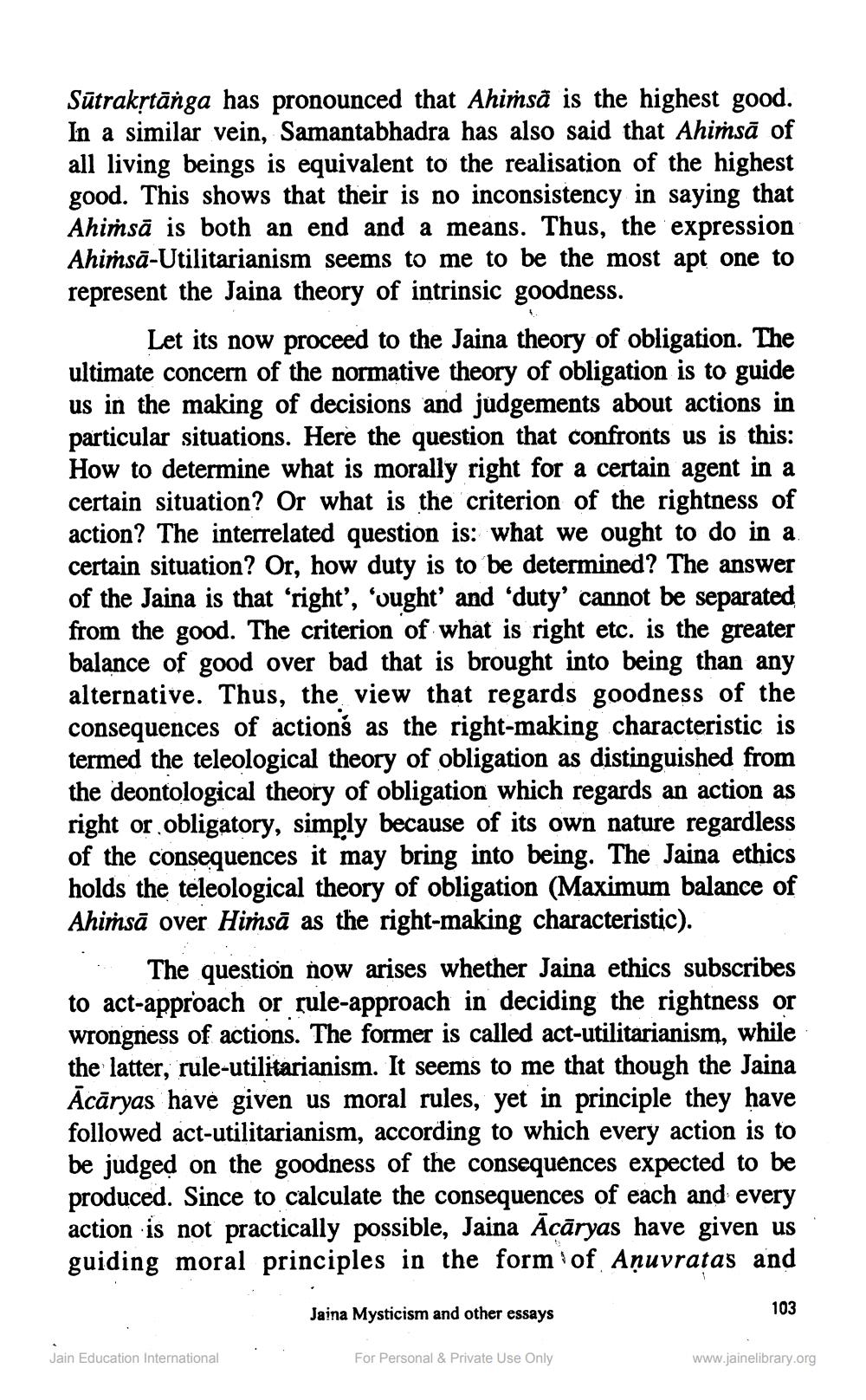________________
Sūtrakstānga has pronounced that Ahimsă is the highest good. In a similar vein, Samantabhadra has also said that Ahiṁsā of all living beings is equivalent to the realisation of the highest good. This shows that their is no inconsistency in saying that Ahiṁsā is both an end and a means. Thus, the expression Ahimsā-Utilitarianism seems to me to be the most apt one to represent the Jaina theory of intrinsic goodness.
Let its now proceed to the Jaina theory of obligation. The ultimate concern of the normative theory of obligation is to guide us in the making of decisions and judgements about actions in particular situations. Here the question that confronts us is this: How to determine what is morally right for a certain agent in a certain situation? Or what is the criterion of the rightness of action? The interrelated question is: what we ought to do in a certain situation? Or, how duty is to be determined? The answer of the Jaina is that 'right', 'ought' and 'duty' cannot be separated from the good. The criterion of what is right etc. is the greater balance of good over bad that is brought into being than any alternative. Thus, the view that regards goodness of the consequences of actions as the right-making characteristic is termed the teleological theory of obligation as distinguished from the deontological theory of obligation which regards an action as right or obligatory, simply because of its own nature regardless of the consequences it may bring into being. The Jaina ethics holds the teleological theory of obligation (Maximum balance of Ahiṁsā over Himsā as the right-making characteristic).
The question now arises whether Jaina ethics subscribes to act-approach or rule-approach in deciding the rightness or wrongness of actions. The former is called act-utilitarianism, while the latter, rule-utilitarianism. It seems to me that though the Jaina Acāryas have given us moral rules, yet in principle they have followed act-utilitarianism, according to which every action is to be judged on the goodness of the consequences expected to be produced. Since to calculate the consequences of each and every action is not practically possible, Jaina Ācāryas have given us guiding moral principles in the form of Aņuvratas and
Jaina Mysticism and other essays
103
Jain Education International
For Personal & Private Use Only
www.jainelibrary.org




